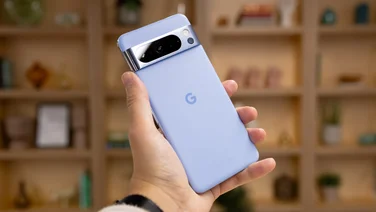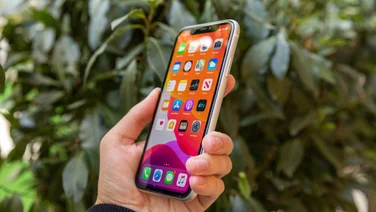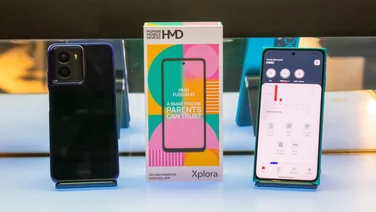To help us provide you with free impartial advice, we may earn a commission if you buy through links on our site. Learn more

We’ve seen several smartphones try to take on the mighty Moto G this year, but so far none have succeeded in claiming its crown for best budget smartphone, including Honor’s own £90 Holly. The Honor 4X, however, might have finally bucked the trend, matching Motorola on price but adding a larger 5.5in screen, 13-megapixel camera and a larger, longer-lasting battery.
Camera
We were particularly impressed with the camera, as our outdoor shots were much brighter and more vivid than those we took on the Moto G. This helped accentuate finer detail in each shot, like the individual bricks in buildings, and dark areas of shadow were well illuminated. It did have a tendency to overexpose light areas of cloud, but this was easily corrected by switching to the HDR mode. Here, colours were richer and areas of shadow looked far more natural than the Moto G’s HDR mode.


The Honor 4X’s camera also has a fun All Focus mode, which lets you change the focal point after the photo’s been taken. It works best with close-up shots where you want to blur the background, but we were pleased to see it kept noise to a minimum when focusing on objects further away.
Watermark mode also lets you add various different stamps to your photos, such as the time, weather, location (if you have GPS enabled) and funky phrase and food icons. While they’re not huge selling points, it’s certainly let you get a lot more creative with your shots than Motorola’s rather basic camera.


Battery Life & Performance
The 4X’s 3,000mAh battery gives it plenty of stamina, too, as it lasted 10h 28m in our continuous video playback test with the screen set to 170cd/m2. This is almost another hour more than the Moto G under the same conditions, so it should definitely get you through a full day’s use.
In terms of raw speed, the octa-core, 1.2GHz Kirin 620 processor and 2GB of RAM compare well with the Moto G’s quad-core, 1.2GHz Snapdragon 400 chipset and 1GB of RAM. In Geekbench 3, for instance, it scored 547 in the single core test and 1,580 in the multicore test, putting it a long way ahead of the Moto G’s 341 and 1,156. While we’re not huge fans of Huawei’s Emotion UI, the 4X felt lightning fast in day to day use and apps opened promptly in Android 4.4.

Web browsing was also very smooth. It may only score 569 in FutureMark’s Peacekeeper browser test, but it handled complex web pages with ease. Scrolling was responsive and we only saw it stutter on a few occasions.
Graphics performance was pretty decent for an entry-level handset. While we weren’t able to run the Manhattan test in GFX Bench GL 3.1, it finished the T-Rex test in 858 frames onscreen and 518 frames offscreen, which is faster than the Moto G’s scores of 609 frames onscreen and 321 off. When we loaded up Blizzard’s Hearthstone, battle animations were smooth and we were able to move cards round the screen with very little judder.
Design
The Honor 4X does come without a few caveats, though, as we don’t think it feels quite as comfy in the hand as the Moto G. The crosshatch-texture on the rear panel cheapens what’s otherwise a very sturdy and well-made device, and its rounded corners and flat chassis also don’t provide a huge amount of grip.
Display
The 4X is quite also large for a 5.5in device, but that’s partly because it has to make room for its dedicated home, back and recent apps buttons. With a 1,280×720 resolution, the 4X’s pixel density isn’t as high as the Moto G’s, measuring 267ppi as opposed to 294ppi, but text still looks reasonably sharp and we couldn’t see any obvious signs of pixilation when we compared the two handsets side by side.

Instead, the biggest flaw is in poor colour accuracy. Our colour calibrator only measured an sRGB colour gamut coverage score of 79.6%, which is a long way behind the Moto G’s 87.6% coverage, and its strong blues and purples made images appear quite subdued by comparison. This isn’t helped by the screen’s somewhat grainy finish either, which seems to accentuate smeary fingerprints
This is a shame, as the 4X’s screen is much brighter, measuring a massive 581.06cd/m2. This makes it easier to see in sunlight, but keeping it on maximum brightness for long periods of time will obviously drain the phone’s battery much quicker than keeping it set to Auto. Contrast levels were also good, measuring 1,240:1, providing plenty of detail in our various test images. Black levels were a mediocre 0.46cd/m2, but this is to be expected when the screen’s brightness is so high.

Conclusion
The Honor 4X is a great phone for £145 and its superior battery life, camera and performance certainly makes a convincing argument to tempt you away from Motorola’s Moto G. However, it simply can’t beat Motorola on build and display quality, and the fact that it won’t be getting an upgrade to Android 5.0 Lollipop is a bit of a deal breaker in our books. You’re also stuck with Huawei’s Emotion UI, which ditches the app tray and is generally a lot fussier to use than Motorola’s version of stock Android.




